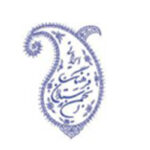“Wills” workshop promotes greater understanding of the Law of the Right of God
The following article, written by several Representatives of the Right of God guided by the Board of Trustees in Canada, describes how the “Wills” workshop, offered across Canada, has raised consciousness over the last two years.
Every law and principle of the Faith revolves around unity, and the guidelines around writing a will are no exception. One touching story illustrates this: before he passed away, a man had written a soul-stirring testament of his love, faith, and belief in Bahá’u’lláh, and wished for his children to do the same to maintain family unity. The testament had so touched their hearts that they framed and read it on each anniversary of his passing.
“Wills and the Right of God” is a workshop offered by Deputy Trustees and Representatives of the Right of God across Canada. Its purpose is to help the believers understand the spiritual significance of writing a will, and how to make provisions for the final payment of the Right of God in one’s will. Guided by two letters from the International Board of Trustees of Ḥuqúqu’lláh, members of the Institution in Canada worked together over several months to develop and refine the workshop material. The late Bahram Gustaspi lovingly shepherded its development from beginning to end.
Over the past two years, the “Wills and the Right of God” workshop has been offered across the country in all provinces and territories, with some 225 learning events held in English, French, and Persian, hosted in large conferences, small groups and with individuals. The workshop has been adapted to reflect the laws in each province and territory and the materials also include sample wording, supplemental legal references, and handouts for one’s executor or legal counsel.
Participants learn that the writing of a will is a sacred, spiritual responsibility: “Unto everyone hath been enjoined the writing of a will,” Baháʼu’lláh revealed in the Kitáb-i-Aqdas. “The testator should head this document with the adornment of the Most Great Name, bear witness therein unto the oneness of God in the Dayspring of His Revelation, and make mention, as he may wish, of that which is praiseworthy, so that it may be a testimony for him in the kingdoms of Revelation and Creation and a treasure with his Lord, the Supreme Protector, the Faithful.”[i] Underscoring further the spiritual nature of a Bahá’í will, Shoghi Effendi explains that “the execution of the provisions of the will causes the spirit of the deceased to rejoice in the Abha Kingdom…”[ii]
The workshop includes the testament of Mr. Yadollah Vahdat, written in prison before his martyrdom in April 1981.[iii] Participants from Prince Rupert and Terrace, B.C. caught a glimpse of the person behind the testament by reading an additional description of his life story.[iv] Upon reading Mr. Vahdat’s testament, one participant who had served at the Bahá’í National Centre in the 1980s was reminded of several martyrs’ testaments being made available during the intensive media campaign launched by the National Spiritual Assembly at the time, to raise awareness of the persecutions in Iran.
During the workshops, it was not unusual to hear participants share thoughts similar to those offered by one Ottawa participant, who commented, “I have never made a testament, even though as a Bahá’í I’ve had a will for decades.” In another workshop, participants who had not yet written a testament in their wills were encouraged to draft one and later share how it had affected them. One person said it felt like carrying out a significant spiritual obligation, another that it felt it was the first time he had ever really been listened to. Someone else noted that it made him appreciate being a Bahá’í and how everything good in his life was due to Bahá’u’lláh. Others simply shared that the exercise made them appreciate how much they loved Bahá’u’lláh. All marvelled that their testaments would be a “treasure” with their Lord.
Friends from Prince Rupert and Terrace, B.C. study the “wills” workshop online with Deputy Trustee Bahram Gustaspi (centre, left) in October 2021.
Across the country many have expressed their greater appreciation of the importance of making provision for a final payment to the Right of God after their passing. “Ḥuqúqu’lláh should be paid by a believer during the course of his life whenever his surplus property reaches the assessable level…when a Bahá’í dies, the only payment to Ḥuqúqu’lláh which should need to be provided for in his Will is such additional liability as may be found to exist when his affairs are reckoned up as at the date of his death.”[v] Others said they were not aware of the need to make a final payment in this way, and appreciated being informed of this counsel. As one participant noted, “I realize now the need to go back and change my will, so that I can incorporate the Law of Ḥuqúqu’lláh, as well as my testament of faith.”
Some participants wrote that they had not thought about how to make it easy for their executor and family to honour the Right of God provisions in their will, promoting unity after their passing. They noted the need to share a copy of their will and their accounting records so a final payment could be made on their behalf. The Representative for the Northwest Territories and Nunavut is also connecting friends across the two territories so they may assist one another in observing the Law. For example, a friend in Nunavut found executors from outside of the community. Another friend in a larger community in the Northwest Territories agreed to provide a friend in Nunavut with an example of a spreadsheet so he could keep track of his payments. Another exclaimed, “This was a Godsend! I felt that Baháʼu’lláh was speaking to me and helping me prepare for the next world!”
This year, the Bahá’í world celebrates 30 years since the Law of the Right of God was made universally applicable. To celebrate this occasion, the Deputies and Representatives invite further study of the “Wills” workshop, as well as other available materials, including Work, Wealth and Service; New Attitude Cards; Family Life and Ḥuqúqu’lláh; and Twelve Lessons on Ḥuqúqu’lláh. The friends should feel free to contact the Representative in their area for access to these resources, as well as with any questions about the Law of Ḥuqúq and to share their desire to study it further. If you are interested in organizing a “Wills” workshop, please contact your local Representative of the Right of God. We will be pleased to assist!
More information on provision in a will for the payment of Ḥuqúqu’lláh can be found here: http://bahaicanada.bahai.ca/wp-content/uploads/2017/07/Canada-Writing-of-a-Will-Excerpt-from-Bahai-Canada-1.pdf
A compilation on the Right of God can be found here: http://bahaicanada.bahai.ca/wp-content/uploads/2014/05/English-Compilation-Right-of-God-2017.pdf
[i] Bahá’u’lláh, The Kitáb-i-Aqdas, para. 109.
[ii] Shoghi Effendi, in a letter written on behalf of the Universal House of Justice, 24 August 1982, cited in Developing Distinctive Bahá’í Communities.
[iii] See Archives of Bahá’í Persecution in Iran website:
https://iranbahaipersecution.bic.org/archive/yadollah-vahdat-executed-firing-squad-shiraz-30-april-1981.
[iv] See Find a Grave Memorial website: https://www.findagrave.com/memorial/159354377/yadullah-vahdat.
[v] From a letter dated 1 October 1989 written on behalf of the Universal House of Justice to the Board of Trustees of Ḥuqúqu’lláh.
Category: Institutions, Right of God








